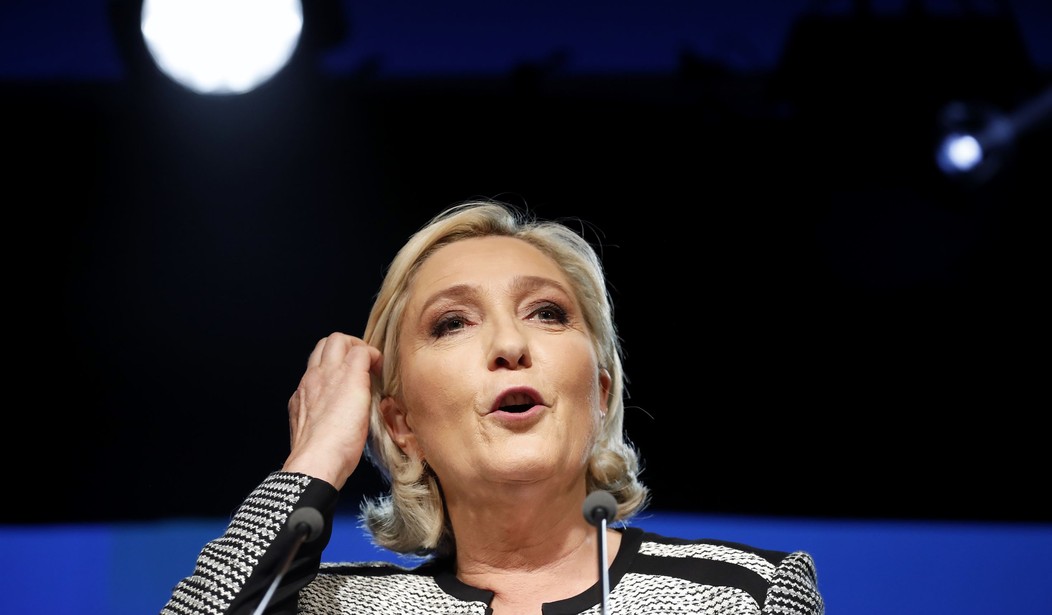The French media has not been kind to conservative leader Marine Le Pen. This isn’t a big surprise since anyone to the right of the socialists in France is immediately branded as a Hitler clone.
But Le Pen was humiliated in the 2017 presidential race, losing to Emmanuel Macron by almost 2-1. Five years ago, her big issue was the unfettered migration into France that was causing security concerns among ordinary French people.
But with Europe in crisis, those issues have been put on the back burner. Instead, Le Pen now talks about reducing the cost of living and getting control of fuel costs — two issues American conservative candidates could learn to focus on before November.
The Ukraine war is a sideshow for most ordinary Frenchmen and Americans. It’s the bread-and-butter issues that will decide the presidential election in France as well as who controls Congress in the U.S.
“She really broke with the style of her previous campaigns and her father’s campaigns. She did a campaign focused on purchasing power and not on migration and security,” said Gallard.
Economic problems are by far French voters’ main concern, far more important than the environment or migration, polls say. This week’s Harris Interactive poll shows that, according to French voters, Le Pen is more credible than Macron when it comes to guaranteeing their purchasing power.
That shows she’s come a long way since 2017 when then-candidate Macron cornered Le Pen during a TV debate on economic issues, and her disastrous performance severely damaged her credibility: She dropped her push for France to leave the EU and the eurozone not long after that.
Instead, she is now campaigning on measures to cut skyrocketing energy prices.
Despite the foreign crisis that usually brings Western electorates together to rally around the incumbent, Le Pen has been narrowing the gap in the polls to where now just eight points separate her and Macron if the second round of voting were held today. That’s far too close for comfort for Macron, whose 30-point win in 2017 seems a distant memory now.
There is going to be a runoff election between Macron and Le Pen, who is almost certain to finish second in the first round. And she has climbed back into the race with old-fashioned hard work and campaigning that’s been on-point.
While Macron was busy talking with Russian President Vladimir Putin and meeting world leaders, Le Pen continued her campaign in La France profonde (deep France) hammering on about everyday life problems such as the price of fuel and people’s purchasing power.
“Le Pen did a proximity campaign, visiting a lot of small towns and villages. Her trips were not very much covered by national press but had a big echo in local media,” said Mathieu Gallard, research director at polling firm Ipsos. “She gave an impression of proximity, which is very important for French voters.”
Le Pen’s odds to win are still long. But the right in France is alive and well, and Le Pen’s standing in the polls and a likely strong showing on election day this Sunday, April 10, puts Macron and the left in France on notice.










